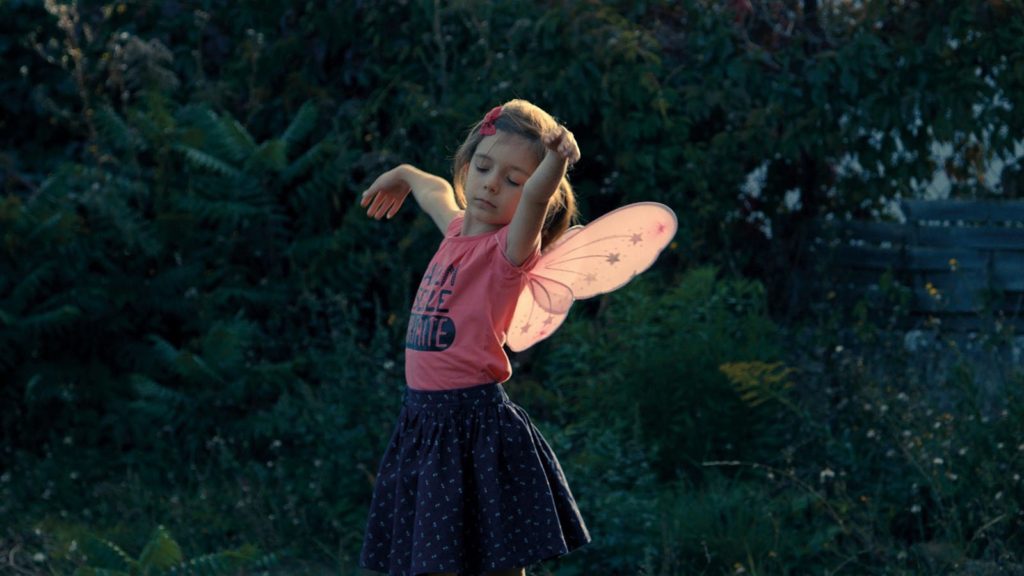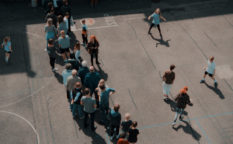Review: Little Girl (2020)

Although he has also made a few feature films, the French filmmaker Sébastien Lifshitz is best known for his work in the documentary field. And in that department, his most notable films, like The Invisibles (2012) and Bambi (2013) are on the various LGBTQ+ topics. His newest work, Little Girl (2020), takes us to the world of an eight-year-old Sasha who is born as a boy, but feels like and IS a girl.
Little Girl premiered at the last year’s edition of Berlinale’s Panorama Dokumente section. It has been touring festivals ever since, with Chicago, Tokyo, Thessaloniki and Jerusalem being the most prominent examples. It currently plays at the spring break edition of the Network of the Adriatic Region Festivals (a joint project by Sarajevo Film Festival, Zagreb Film Festival, Auteur Film Festival Belgrade and Herceg Novi Film Festival screened at the VOD platform of Sarajevo’s Kino Meeting Point). The next stop on the schedule is Seattle International Film Festival.
Despite her gender being assigned as male at birth, Sasha acts like a typical girl: she enjoys trying the clothes and the various accessories out and going to the ballet classes. She is lucky enough to enjoy the support from her parents and siblings, but the world outside her house walls in a provincial town in northern France feels less safe and welcoming for her. She is simply not allowed to be who she is because it makes the others (who were born in a binary world and have no problem with it) too uncomfortable.
The institution that gives her and her family the hardest time is her grade school whose headmaster and teachers try to play the blame game with Sasha’s mother, implying that she is the one who forces the female identity upon her son and that their job is to straighten it out. What ensues is the battle of wits, the world-views and the bureaucracy. The goal for Sasha’s parents is to make the school recognize their child as female and allow her to dress the way she wants and have a pink pencil box if she wants to. The way to achieve it is to have an expert opinion, or even diagnosis, of a specialist in children’s psychology and for that, they have to travel to Paris. The sessions help them feel better and achieve some successes in their struggle with the school, but the diagnosis of gender dysphoria opens a new bundle of issues for them.
Firstly, the world around them will remain binary for a certain period of time, even with a lot of patience and education. The prime example for that is Sasha not being allowed to express herself as a little ballerina in her ballet class. Secondly, even though the children are less judgmental and more prone to accept people for who they really are, Sasha does not actually “belong” anywhere: she has one proper school friend, while the others reject her (the boys for being too feminine and the girls for being too feminine for a boy). Finally, puberty is not that far ahead, and that brings a lot of options (different therapies) to the table. And for parents, there is always the shadow of a doubt about their parenting, ranging from the bizarre questions (did the “unisex” name create the gender confusion?) to the more serious dilemmas (if mother wanting a girl while she was pregnant influenced Sasha’s future preferences).
Despite the filmmaker himself being disqualified by some reviewers for what he is (does a cis-gender male have a right to raise the issue of a trans-gender girl?), the combined approach he opts for and the sure-handedness of the execution prove that Lifshitz is the right man for the job. He usually goes for the observational, unobtrusive style in which he tries to capture the positions of both Sasha and her parents, but, when an occasion rises, he is there to offer a sympathetic ear and let them talk directly to the camera. Aided by the beautiful, evocative cinematography by his frequent collaborator Paul Guilhaume and by the seamless editing by Pauline Gaillard, Lifshitz manages to tell the story in a heart-felt way with a complete lack of sensationalism and didactic. After all, it is Sasha and the possibility for her to lead her life the way she wants that matter the most.
Original title: Petite fille
Year: 2020
Runtime: 90’
Countries: France, Denmark
Language: French
Directed by: Sébastien Lifshitz
Written by: Sébastien Lifshitz
Cinematography by: Paul Guilhaume
Editing by: Pauline Gaillard
Sound by: Yolande Decarsin
Music supervisor: Thibault Deboaisne
Visual effects by: Emmanuel Chex
Assistant directors: Adélaïde Mauvernay, Philippe Thiollier
Additional cinematography by: Céline Bozon
Produced by: Muriel Meynard
Co-produced by: Monica Hellstrøm, Fabrice Puchault
Production companies: Agat Films & Cie, Arte France, Final Cut for Real, Cineimage 13
Supported by: Centre national du cinema et de l’image animée, Danish Film Institute
Sales by: mk2
















